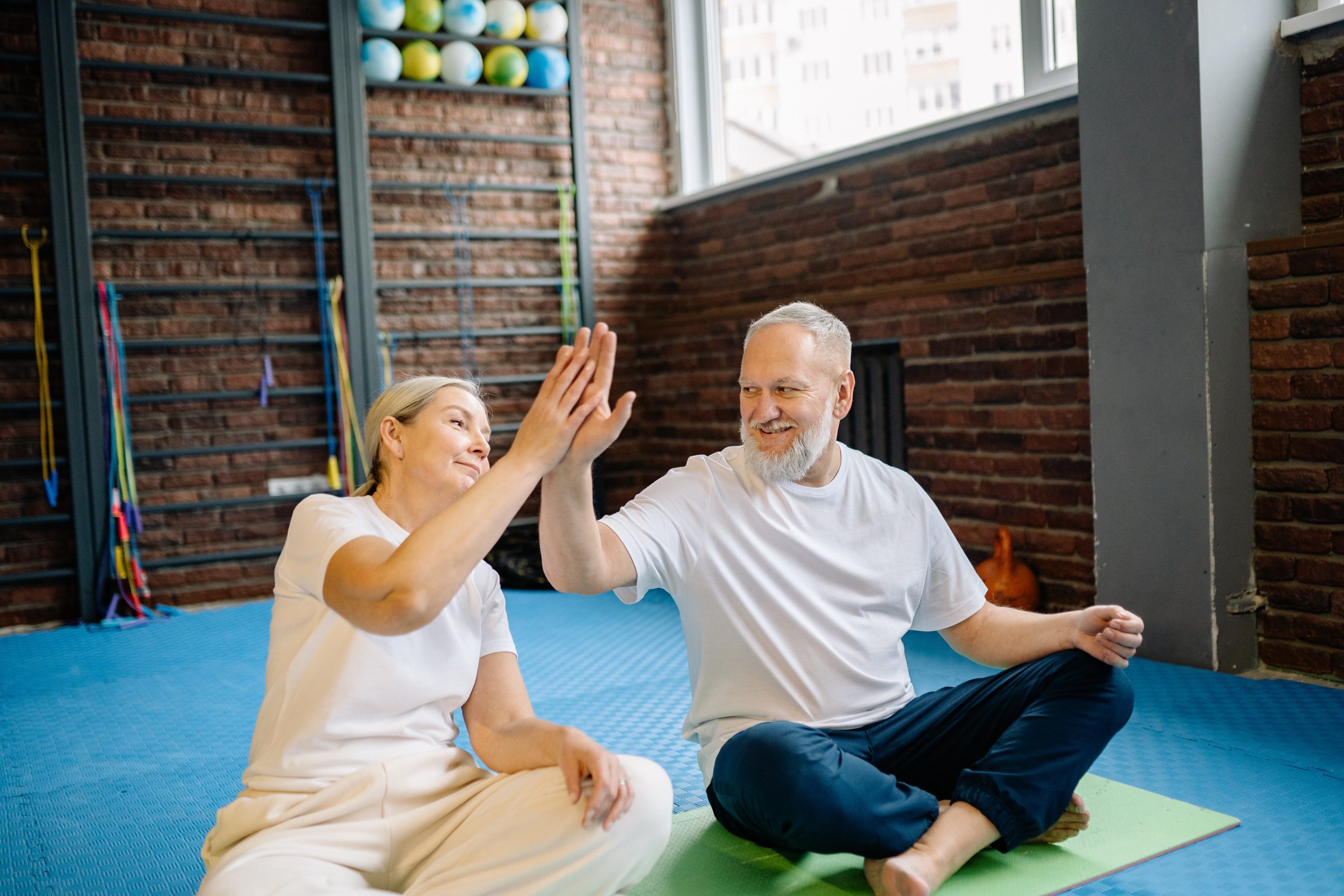Innovative Approaches to Alzheimer’s Care: New Research and Techniques

The image is not directly related to the article. It merely symbolizes the life of elderly people.
What are some innovative approaches to Alzheimer’s care?
Innovative approaches to Alzheimer’s care involve new research and techniques that aim to improve the quality of life for individuals with Alzheimer’s disease. Some of these approaches include:
- Non-pharmacological interventions: These interventions focus on improving cognitive function, memory, and overall well-being through activities such as music therapy, art therapy, and reminiscence therapy.
- Technology-based solutions: Technology has played a significant role in Alzheimer’s care, with the development of various tools and devices aimed at assisting individuals with daily tasks, memory support, and communication.
- Person-centered care: This approach emphasizes understanding and addressing the unique needs and preferences of individuals with Alzheimer’s. It involves creating a supportive and empowering environment that promotes dignity and independence.
- Multisensory stimulation: By engaging multiple senses, such as touch, sight, and smell, multisensory stimulation can help individuals with Alzheimer’s to connect with their surroundings, evoke memories, and enhance their overall sensory experience.
- Exercise programs: Regular physical exercise has been shown to have numerous benefits for individuals with Alzheimer’s, including improved cognitive function, reduced behavioral symptoms, and enhanced overall well-being.
What is the latest research on Alzheimer’s care?
The field of Alzheimer’s care is constantly evolving, with ongoing research focused on improving understanding, diagnosis, and treatment of the disease. Some of the latest research in Alzheimer’s care includes:
- Early detection and biomarkers: Researchers are exploring new methods to detect Alzheimer’s in its early stages, including the use of biomarkers such as brain imaging and cerebrospinal fluid analysis.
- Drug therapies: There are ongoing clinical trials investigating potential drug therapies for Alzheimer’s, aiming to slow down disease progression or alleviate symptoms.
- Preventive strategies: Researchers are studying various lifestyle factors, such as diet, exercise, and cognitive engagement, to identify preventive strategies that may reduce the risk of developing Alzheimer’s.
- Genetic research: Understanding the genetic factors that contribute to Alzheimer’s is a key area of research. Genetic studies help identify potential risk factors and develop personalized approaches to care.
- Non-pharmacological interventions: Researchers continue to explore the effectiveness of non-pharmacological interventions, such as cognitive training, physical exercise, and social engagement, in improving cognitive function and delaying disease progression.
How can technology aid in Alzheimer’s care?
Technology has the potential to greatly assist in Alzheimer’s care. Some ways in which technology can aid in Alzheimer’s care include:
- Memory support: Various devices and apps can help individuals with Alzheimer’s manage their daily routines, reminders, and medication schedules.
- Communication tools: Technology can facilitate communication between individuals with Alzheimer’s and their caregivers or loved ones through video calls, messaging apps, and social media platforms.
- Virtual reality: Virtual reality technology can create immersive experiences that stimulate memory recall, provide relaxation, and offer therapeutic benefits for individuals with Alzheimer’s.
- Monitoring and safety: Wearable devices and smart home technologies can track the location of individuals with Alzheimer’s, monitor vital signs, and provide alerts in case of emergencies or wandering.
- Cognitive training: Digital platforms and apps offer cognitive training exercises specifically designed to improve memory, attention, and problem-solving skills in individuals with Alzheimer’s.
What is person-centered care in Alzheimer’s care?
Person-centered care is an approach in Alzheimer’s care that focuses on the individual’s unique needs, preferences, and values. It involves creating a supportive and empowering environment that promotes dignity, independence, and personhood. Key principles of person-centered care in Alzheimer’s include:
- Understanding and respecting the individual’s life history, interests, and preferences.
- Involving the person with Alzheimer’s in decision-making and care planning.
- Promoting independence and autonomy as much as possible.
- Providing opportunities for meaningful social engagement and activities.
- Creating a comfortable and familiar physical environment.
How does exercise benefit individuals with Alzheimer’s?
Regular physical exercise has numerous benefits for individuals with Alzheimer’s, including:
- Improved cognitive function: Exercise has been shown to enhance memory, attention, and overall cognitive abilities in individuals with Alzheimer’s.
- Reduced behavioral symptoms: Physical activity can help reduce symptoms such as agitation, aggression, and anxiety commonly associated with Alzheimer’s.
- Enhanced physical health: Exercise promotes cardiovascular health, muscle strength, and balance, which can help maintain independence and reduce the risk of falls.
- Improved mood and well-being: Engaging in regular exercise can boost mood, reduce depression, and improve overall psychological well-being in individuals with Alzheimer’s.
- Potential disease-modifying effects: Some studies suggest that physical exercise may have disease-modifying effects, potentially slowing down the progression of Alzheimer’s.
The image is not directly related to the article. It merely symbolizes the life of elderly people. What are some innovative approaches to Alzheimer’s care? Innovative approaches to Alzheimer’s care involve new research and techniques that aim to improve the quality of life for individuals with Alzheimer’s disease. Some of these approaches include: Non-pharmacological interventions:…
Recent Posts
- Empowering Caregivers: The Best Online and Offline Resources to Enhance Your Skills
- Traveling with a Purpose: The Rise of Volunteer Vacations
- Breaking Stigma: Dispelling Myths about Mobility Aids and Disability
- Avoiding Probate: How Trusts Can Simplify the Estate Settlement Process
- Senior Citizens Beware: Common Financial Scams and How to Stay Protected

